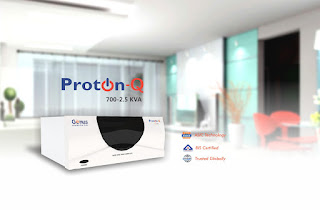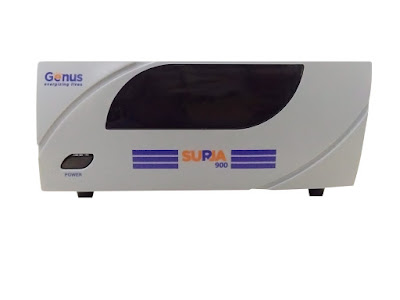Things to Know Before Buying Inverter for Home Use
 Getting an inverter for home is a necessity rather than a luxury. With erratic power cuts and voltage fluctuations not only in summers but around the year, having an inverter is essential. Otherwise, those pricey appliances will be pieces of furniture filling up the space in your house. However, with plenty of options around you, figuring out the one best for your home needs can get tough. So, it is essential to know a few things before you head out to buy an inverter for home use. Below are some of these things that will come in handy.
Getting an inverter for home is a necessity rather than a luxury. With erratic power cuts and voltage fluctuations not only in summers but around the year, having an inverter is essential. Otherwise, those pricey appliances will be pieces of furniture filling up the space in your house. However, with plenty of options around you, figuring out the one best for your home needs can get tough. So, it is essential to know a few things before you head out to buy an inverter for home use. Below are some of these things that will come in handy.
• Analyze Power Consumption: Before you venture out to buy an inverter for home use, take an average of the summer and winter day power requirement. This average is essential as you will need to buy the inverter on the basis of it, otherwise it will not be able to run all the electrical appliances and fixtures in your home. Determine the load capacity and accordingly buy the inverter, so that all the appliances can run and that too for long hours.
• The difference between an Inverter and UPS: In terms of functionality, both an inverter and UPS are the same. They convert the direct current into alternating current and use it as a backup option for generating power. However, the basic difference is that a UPS provides an uninterrupted power supply. An inverter, on the other hand, takes some time to start in the event of a power cut. So, if you want to supply uninterrupted power to your PC, then supplement it with a UPS too.
• Types of Inverter: There are mainly two types of inverters, such as Pure Sine Wave and Modified Sine Wave. A Pure Sine Wave has a fast transfer time and supplies a pure form of power, which is ideal for TV and computer. On the other hand, the Modified variant has harmonic distortion and can be apt for non-sensitive appliances. These days you will mainly find the Pure Sine Wave variant, which is also known as Digital Signal Processing.
• Other Specifications: The other vital specifications that you should look out for while buying an inverter include VA rating, battery voltage, battery charge time, safety feature and warranty. It is the load that an inverter can take which you will get to know through the VA rating; the battery voltage tells about how long an inverter can run. And how much time it will take to charge is something that the battery charge time will indicate.
Further, be sure of the safety aspect with features like short circuit protection, overload protection, audio alarm among others.
Buy Inverter for Home Use
If you are looking to buy a reliable and high performing inverter for home use, then end your search at Genus Innovation. Cost-effective and stable, they come with ASIC technology and provide a good user experience. The Genus Inverters and UPS range also provide a wide voltage range of 90-240V. So, check the options and buy a high-performing, safe and stable inverter for home.


Comments
Post a Comment